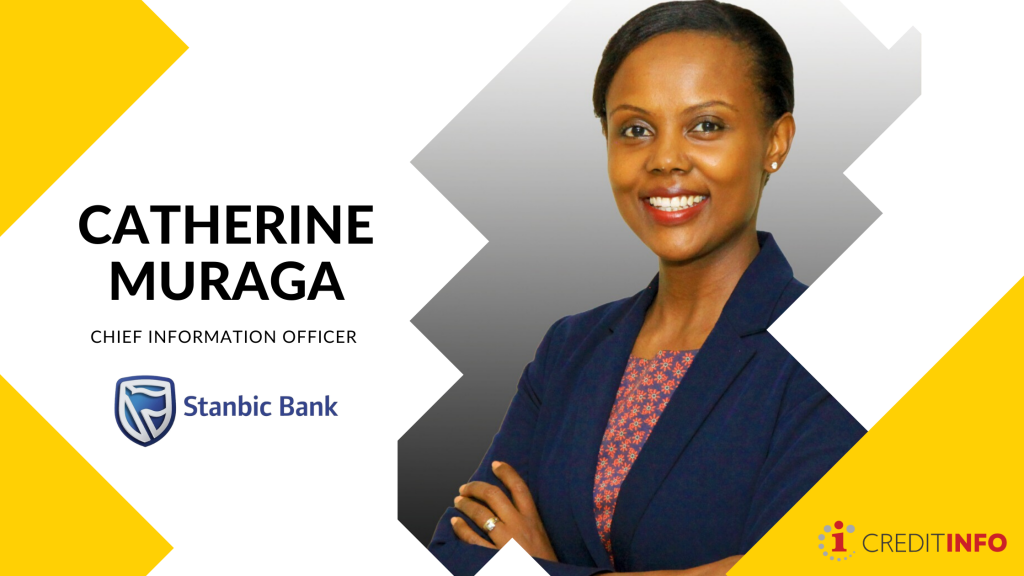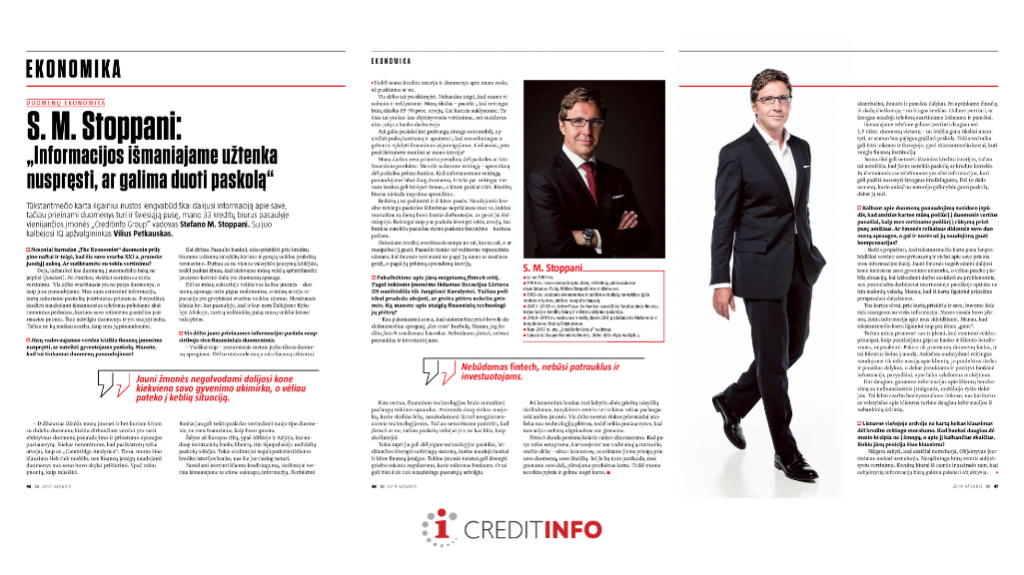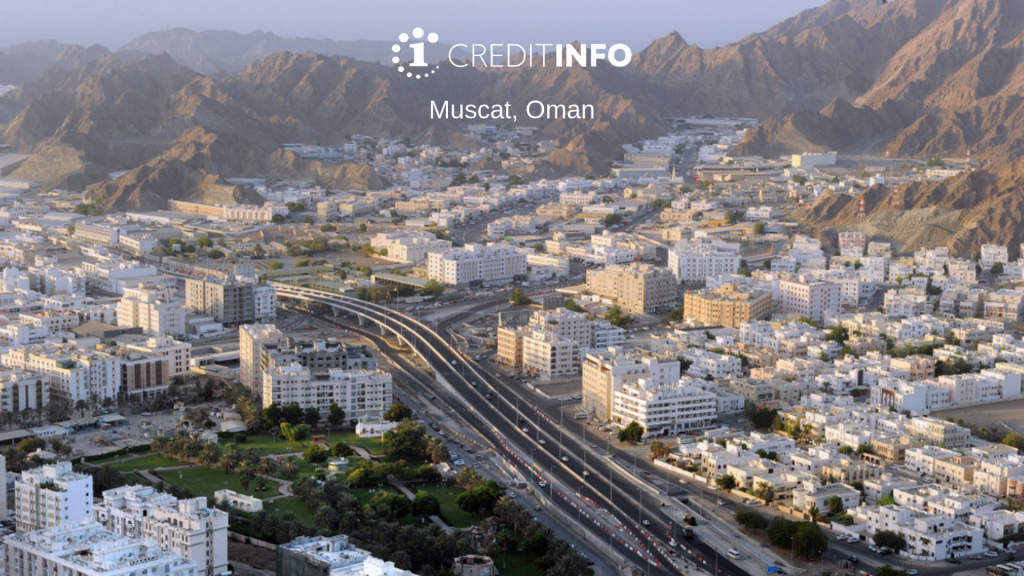The way leading to the ‘haven’ of Startups is grounded by Data Analysis

Lithuania‘s transformation to the startup-friendly country has been successful: last year the first “unicorn” appeared in the market, and the startup ecosystem at present includes over 900 enterprises which have the great potential for business development based on innovations. And yet, the general conception of the startups’ contribution to the country’s economy has remained stereotypical, as it is alleged that these are risky enterprises which rapidly emerge and dissolve, and that they create few workplaces. The latest analyses done by “Creditinfo” and “Startup Lithuania” reject these stereotypes.
Interview with Catherine Muraga, CIO – Stanbic Bank Kenya

We interviewed Catherine Muraga the Chief Information Officer (CIO) at Stanbic Bank Kenya – one of the largest banks in Africa. Catherine is well versed with the Information Technology (IT) landscape having worked in different industry sectors including Manufacturing, Airline and Banking industry. She provides strategic vision and operational IT leadership for the Information Technology Department and controlling all IT functions. We asked her a few questions around COVID-19 and how Stanbic Bank is working around this pandemic.
Creditinfo’s commitment to Data Quality

Data is the new oil, but quality is paramount
In 2017, The Economist ran a cover story portraying data as the new oil, (certainly not last week’s oil), calling it “the world’s most valuable resource”. Data is pervasive and is collected regarding virtually everything that happens. Essentially it comes down to one simple cycle, as described in that 2017 issue: “By collecting more data, a firm has more scope to improve its products, which attracts more users, generating even more data, and so on…” Information is power (for credit bureaus, the power to enhance market lending effectiveness). But there is a catch; because not any kind of data will suffice. In the world of credit, for it to be valuable, data must be complete, high quality, regularly transmitted and verifiable. High-quality data has a deeper, more transformative power. In this industry, data quality and completeness are critical for the successful impact of credit bureaus, and Creditinfo has, since its founding, had a clear focus on this area to support banks, MFIs and other institutions for constant improvement.
In Morocco, Financial Inclusion seen as key to Development

Last October, King Mohammed VI of Morocco made a speech to mark the beginning of the new session of Parliament. In the yearly address which traditionally signals the general policy direction for the next 12 months, he called on banks and financial institutions to play “a greater role” in the country’s development. He specifically referred to “simplifying and facilitating access to loans…. and financing the creation of small and medium sized enterprises.”
Trusting Creditinfo Bureau Score in a Crisis

The quality of predictive algorithms plays a crucial role in Creditinfo operations. We strive to help our Clients perform efficient credit decisions through smart and innovative use of data.
The financial inclusion conundrum in developed economies

By Stefano Stoppani – CEO, Creditinfo Group
Last month, consumer champions Which? revealed the findings of research into the state of the UK banking sector – with a somewhat bleak conclusion. The top line of the study? A third of all UK bank and building society branches have closed over the last four and half years. Of those that remain on our high streets, opening times have narrowed.
Coremetrix Psychometric Profiles: Do you really know your customer?

By David Kaufer (Senior research psychologist at Coremetrix)
I used to live in a small town where everyone knew everyone. I don’t live there anymore – not even in the same country or continent. I grew up and moved on, but deep inside I still have a sweet spot for this town because of the memories; memories of the countryside, my primary school, my family, neighbours, playmates, teachers and local merchants.
“Smartphone information can be sufficient to make a credit decision”

ARTICLE – IQ MAGAZINE INTERVIEW IN LITHUANIA WITH STEFANO STOPPANI
ECONOMICS | DATA ECONOMICS
“Smartphone information can be sufficient to make a credit decision”
Millennials will eventually stop from carelessly distributing information about themselves, but accessible data have a bright side too, thinks Stefano M. Stoppani, the CEO of “Creditinfo Group”, uniting 33 credit bureaus around the world. A discussion held by IQ reporter, Vilius Petkauskas.
Recently, “The Economist” compared data to oil and affirmed that the importance of the former in the XXI century will overpower the black gold. Would you agree with such a statement?
Creditinfo Group Expands Middle Eastern Presence with New Regional Office

PRESS RELEASE
Creditinfo opens new facility in Muscat, Oman to enhance services offered to customers in region
Muscat, Oman, 12 March 2019 – Today, Creditinfo Group, a leading provider of global credit information and fintech services, announces that it is expanding its footprint in the Middle East with the creation of Creditinfo Gulf, the organisation’s regional hub in Muscat, Oman. The new office will support current and prospective Creditinfo clients, with access to a wealth of global expertise, knowledge and technology to enhance the existing financial infrastructure in the region.
Credit Information Bureau of Sri Lanka strengthens financial infrastructure with Creditinfo Group

PRESS RELEASE
Credit Information Bureau of Sri Lanka (CRIB) and CreditInfo enter into strategic partnership to enhance its credit bureau services in the country.




